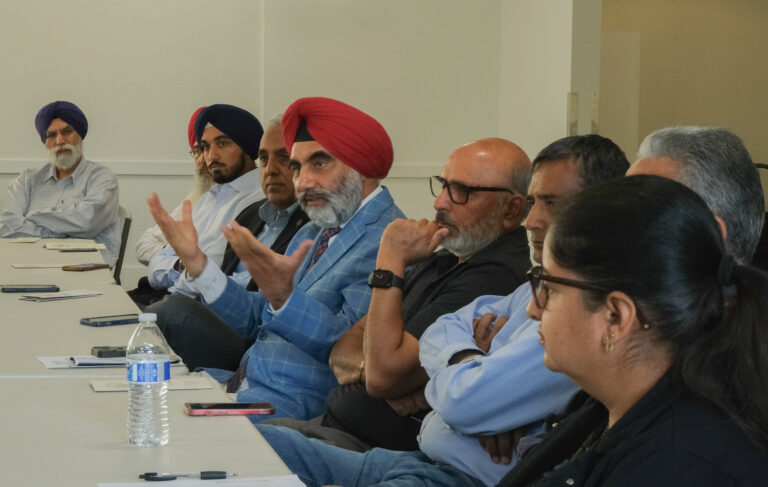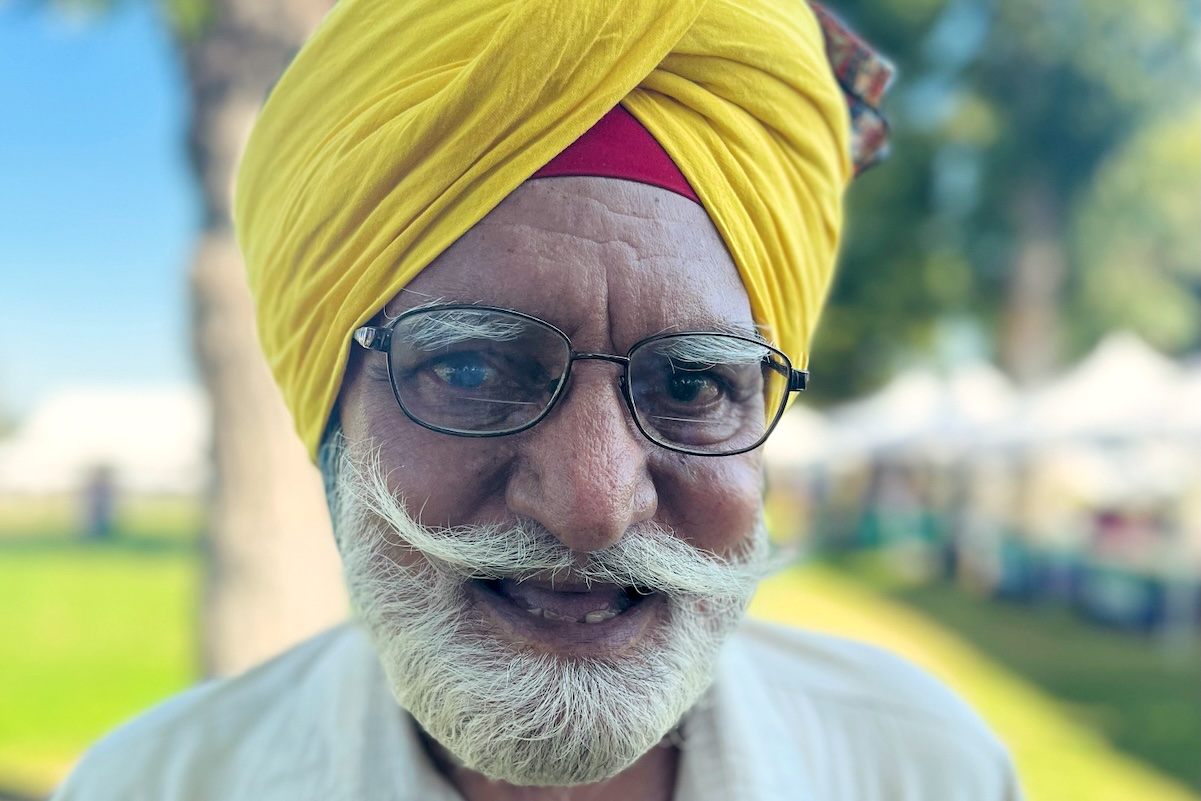By Yucheng Tang | Chico Sol
YUBA CITY, Calif. — Sikh communities want more visibility and want their stories heard.
Not only should the religious stories be told, but also the stories about how Sikh farmers grow peaches and walnuts, how Sikh community members import food from Mexico or export into Canada, and how they contribute to California’s economy. That’s the view of Jasbir Singh Kang, co-founder of the Punjabi American Heritage Society in Sutter County.
The “Sikh Listening Session” held in Yuba City on Oct. 23 was organized by the California Racial Equity Commission and the California Commission on Asian and Pacific Islander American Affairs (CAPIAA) and gave community members the opportunity to share their stories.
Kang told ChicoSol that he has seen positive change in the relationship between the Sikh community and the larger U.S. society.
“As more Sikh people became educated and entered various professions, we had more interaction with other communities and changed the perception of the community,” he said. “Now, we are in many different professions, and the mainstream community starts to treat us as part of a bigger family.”
Kang noted there have also been challenges.

“We have been victims of false narratives,” he said, adding that hate groups have been building those false narratives and calling members of Sikh communities extremists or terrorists.
“The best shield or protection against racism is education,” Kang said. “I’d like to see more in the school and the social sciences and the history books and the curriculums. I’m not talking about people in India. I’m talking about people who made this state, who worked hard to build California like anybody else … just like other Asians — Chinese, Japanese — This kind of history needs to be in the books.”
Kameron Virk, a CAPIAA intern, told ChicoSol that his community is overlooked in some ways “because we’re not represented by the media and we kind of get grouped into the other larger Asian community or thrown into other religious groups.”
Virk never wore a patka when he was a kid, which is a smaller version of a turban for Sikh boys. In the Sikh faith, covering the head or hair is mandatory. He said his parents didn’t let him practice this religious tradition because they feared for his safety. They were afraid that he would be attacked by people who hold hatred toward the group.
After the 9/11 attacks, the community faced more hate incidents because they were sometimes mistaken as Arabs by individuals or groups intending to attack Arabs. In 2012, six Sikh people were killed and four were wounded by a gunman in a gurdwara, a Sikh house of worship, in Wisconsin. Based on FBI 2022 crime statistics, the number of anti-Sikh incidents (181) ranked second among the 2,042 religion-based hate crimes.
Guramrit Singh was born in Chico, moved to the Yuba City area as a child, and recently graduated from UC Berkeley with a degree in economics. He said he has never faced discrimination because there are many Sikh people in the area. But he met people in school who faced racism when they grew up in other areas that didn’t have strong Sikh communities. “They were called terrorists at school. They were asked to go back home. They were beaten up or punched in the face,” Singh said.
The first Sikh immigrants — they were among the first Indian American immigrants — came to Yuba City in the early 1900s, and by 2020, the Sikh population in the city had reached 10,000.
Virk believes that making people more aware of Sikh culture, Sikh religious identity, and the economic impact Sikh communities have will reduce racism and discrimination against them.
There were other urgent issues brought up during the event, including the need for more resources and funding. Sikh communities need centers that have the capacity to provide services for teenagers who struggle with substance abuse, for senior citizens needing assistance or support, and for women who suffer from domestic violence.
Larissa Estes, the executive director of the Racial Equity Commission, encouraged the local community to be more aware of the importance of participating in U.S. Census counts.
“The census is really important in making sure that our communities are counted, because that then determines how much federal money we get,” Estes said. “It also influences how decisions are being made. When you disaggregate data, it isn’t just like Asian and Pacific Islanders are all into one.”
The 2020 census counted Sikh people as a distinct group within the Asian category, rather than classifying them as “Asian Indian” as had been done previously.
Data can be used to inform the state agencies or local government in decision-making, Estes noted. “If you don’t look at data in those ways and participate in that data collection, there’s an opportunity that you get missed,” she said.
After the listening session, Estes told ChicoSol that the biggest insight she gained from the session was the extent to which “we are similar across the state.”
“The things we want for ourselves and our families, the ability to thrive, but also many of the challenges that the Sikh community has experienced here in Yuba City are also experienced by many other communities across the state,” she said.
Khydeeja Alam, the executive director of CAPIAA, said she learned from the Listening Session.
“What I learned from this community today is that they have survived on their own, basically, without state resources,” she said. “It’s a community that gives. But there are also needs that they would like the state to focus on, whether it’s through funding and resources, whether through research and outreach centers.
“We heard from the community members today that they are farmers, they are transporters, they are businessmen, they are educators, they are doctors, and they have contributed so much to this region, and they wanna be acknowledged, they wanna be celebrated like any other community.”

Yucheng Tang is a California Local News Fellow reporting for ChicoSol. This resource is supported in whole or in part by funding provided by the State of California, administered by the California State Library in partnership with the California Department of Social Services and the California Commission on Asian and Pacific Islander American Affairs as part of the Stop the Hate program. To report a hate incident or hate crime and get support, go to CA vs Hate.




